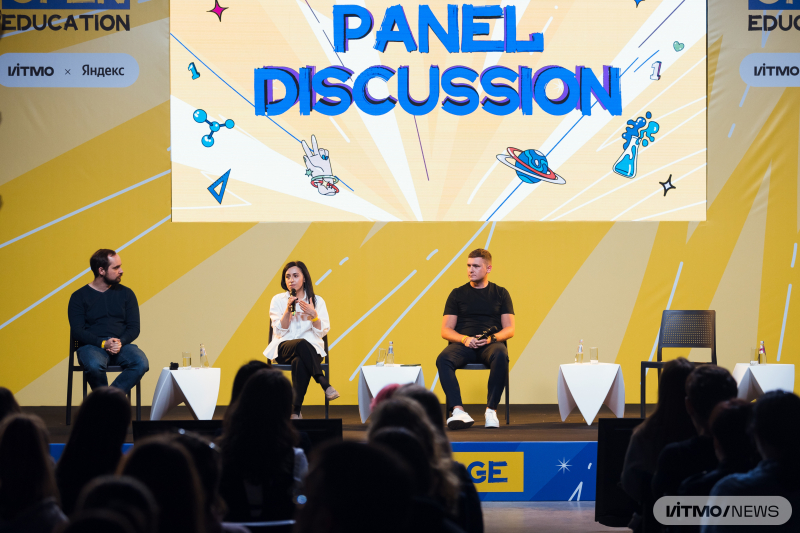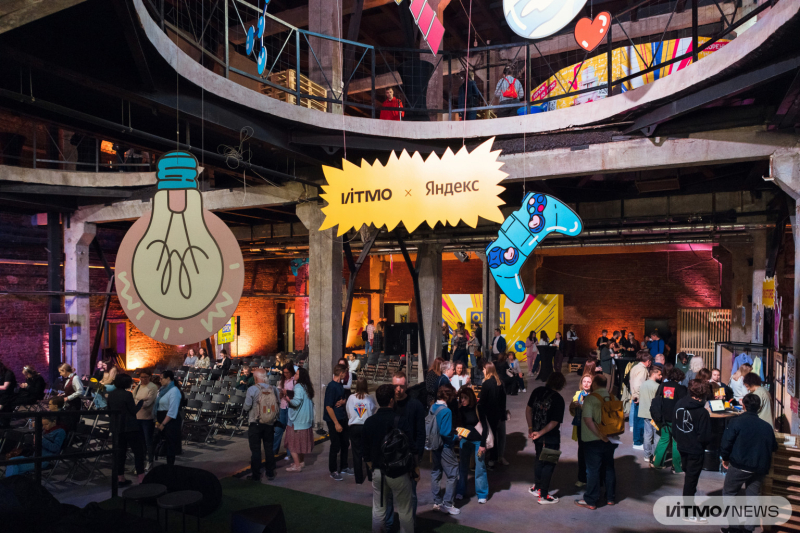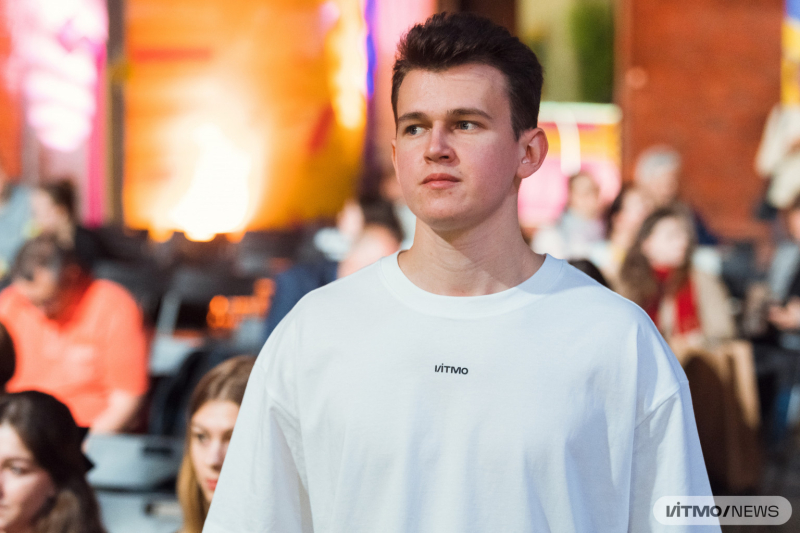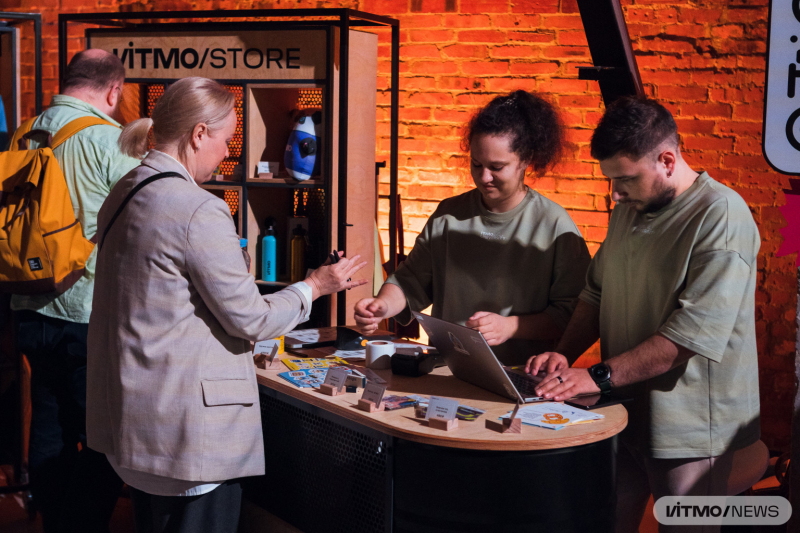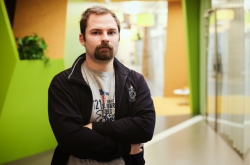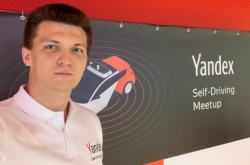The benefits of higher education
Community and exciting projects. Ilya Semerikov and his fellow researchers from the team Precision Quantum Measurements at the Russian Quantum Center were the first in Russia to develop a multi-use four-qubit ion computer based on ququarts (a ququart is a qubit for which the number of possible states is four – Ed.). The development, which got him charting the Forbes 30 Under 30 list in 2022, can perform all quantum operations, both one-qubit and two-qubit, exponentially faster than an ordinary computer. This, nevertheless, would not have been possible if the researcher had not switched from theoretical astrophysics, which left him with no results, to ultracold ions following the advice of his classmates.
“I struggled with astrophysics so kept asking around about what field I may hop on to when one of my fellow students told me about the Laboratory of Precision Quantum Measurements. I decided to join. If it wasn’t for the university, not only wouldn’t I have learned about the lab but also I wouldn’t have found a community that changed my life. The community brings together people from multiple competence centers where you can find something to your liking. That’s how I found something for myself,” shared Ilya Semerikov.

Ilya Semerikov. Photo by Dmitry Grigoryev / ITMO.NEWS
Industry knowledge. In 2017, Mark Sanevich and Mikhail Belyandinov graduated from the Faculty of Medicine at Lomonosov Moscow State University. Having received their certificates, they could either apply for residences or continue to expand their BestDoctor platform. They opted for the latter – and did not lose. In 2018, their startup raised $3 million in funding from Target Global and AddVenture and two years later, helped them make the 2020 list. “The education was what gave us an insight into how the industry works and helped us eventually find our niche,” stressed Mikhail Belyandinov, a co-founder and CEO of BestDoctor, at ITMO Open Education conference.
Read also:
ITMO Student Featured on Forbes Russia’s 30 Under 30 Longlist
ITMO and Yandex Collaborate on This Year’s ITMO Open Education Conference

ITMO Open Education. Photo by Dmitry Grigoryev / ITMO.NEWS
How to create a more efficient educational system
Having said that, the winners, however, admit that universities do not always meet students’ expectations – but there are several changes that could be made to update the system.
Introduce students to careers. In fact, it is even better if prospective students start to broaden their horizons while they are still in school, says Elmira Ibragimova, the founder of the first women’s football team in Dagestan (Russia) and the laureate of the Forbes 30 Under 30 in 2021. One thing is certain, educators need to organize more career events and meetups with company representatives so that students can learn more about different career options. Of not less importance is giving school graduates enough time to make a conscious decision about the field that kindles their interest.

Elmira Ibragimova. Photo by Dmitry Grigoryev / ITMO.NEWS
“Once out of school, we have no idea what to do next. I experienced it myself. I was 16 when I fell in love with football but there was no such thing as women football in Dagestan at that time. My mom wanted me to be a doctor but personally, I didn’t know where or what I wanted to study. I believe that students need to take time off after school to explore different fields and find what they enjoy most,” said Elmira Ibragimova.
Mikhail Belyandinov is also of the opinion that students should first have general courses to get acquainted with their future career and only then, in their third or fourth year, choose a specialization to practice their skills. Moreover, the entrepreneur is confident that training should not be limited exclusively to one faculty.

Mikhail Belyandinov. Photo by Dmitry Grigoryev / ITMO.NEWS
“Universities should be a pathway to students’ future careers, be it in academia or industry. Here, students have the chance to meet different people, yet not without some reservations. To overcome the faculty system, I’d let students go to other faculties, present their projects there, and receive additional points. This may not be that necessary for their specializations but it is for their overall knowledge. Students should be free to choose what they really want and be offered assistance along the way,” explained Mikhail Belyandinov.
Personalize learning. As suggested by Ilya Semerikov, personalized learning can be achieved through introducing feedback from companies.

The panel discussion with the Forbes 30 Under 30 winners. Photo by Dmitry Grigoryev / ITMO.NEWS
“As a rule, educational programs do not get updated unless some students make it clear that new courses have to be introduced. Exams are not a form of feedback. Once they’re over, nothing changes much,” noted Ilya Semerikov.
According to Ilya Semerikov, educators should ask companies involved in the educational process about what students need to improve and then, based on the feedback received, students could create their own individual learning tracks that would meet their needs and interests. Apart from that, Ilya Semerikov stands for regular educational seminars at universities where senior students would share their experience.
Improve study environments. It includes all spaces where students study: classrooms, coworking spaces, and even educational conferences. Mikhail Belyandinov is certain that a good study setting will make students more excited about their studies, the example being ITMO Open Education (learn more about the conference here).
“I love it here. When I heard “educational conference,” I immediately thought of lecture halls and student boredom. But ITMO Open Education is different. If I headed a university, the first thing I’d do would be to make learning fun for students,” confessed Mikhail Belyandinov.
Add practice to the classroom. A practice-oriented approach could include the use of advanced technologies or interactive classes where students can literally touch what they are studying. Now, teachers can opt for 3D models over textbook illustrations when teaching students about human anatomy, thus providing a whole new experience for them.
And last but not least, the best education cannot do without academic freedom.
“The way I see it, students here have the freedom to choose. I am fascinated by what the university offers and how it communicates with its students. That goes for coworking spaces, practical classes, and events, like the one we’re at right now. Today’s students are different and they need different approaches. ITMO is one of the vivid illustrations of how to make learning efficient and exciting,” concluded Mikhail Belyandinov.
